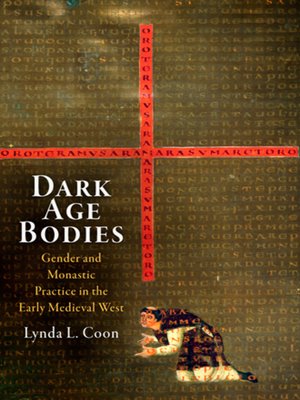Dark Age Bodies
ebook ∣ Gender and Monastic Practice in the Early Medieval West · The Middle Ages Series
By Lynda L. Coon

Sign up to save your library
With an OverDrive account, you can save your favorite libraries for at-a-glance information about availability. Find out more about OverDrive accounts.
Find this title in Libby, the library reading app by OverDrive.



Search for a digital library with this title
Title found at these libraries:
| Library Name | Distance |
|---|---|
| Loading... |
In Dark Age Bodies Lynda L. Coon reconstructs the gender ideology of monastic masculinity through an investigation of early medieval readings of the body. Focusing on the Carolingian era, Coon evaluates the ritual and liturgical performances of monastic bodies within the imaginative landscapes of same-sex ascetic communities in northern Europe. She demonstrates how the priestly body plays a significant role in shaping major aspects of Carolingian history, such as the revival of classicism, movements for clerical reform, and church-state relations. In the political realm, Carolingian churchmen consistently exploited monastic constructions of gender to assert the power of the monastery. Stressing the superior qualities of priestly virility, clerical elites forged a model of gender that sought to feminize lay male bodies through a variety of textual, ritual, and spatial means.
Focusing on three central themes—the body, architecture, and ritual practice—the book draws from a variety of visual and textual materials, including poetry, grammar manuals, rhetorical treatises, biblical exegesis, monastic regulations, hagiographies, illuminated manuscripts, building plans, and cloister design. Interdisciplinary in scope, Dark Age Bodies brings together scholarship in architectural history and cultural anthropology with recent works in religion, classics, and gender to present a significant reconsideration of Carolingian culture.







